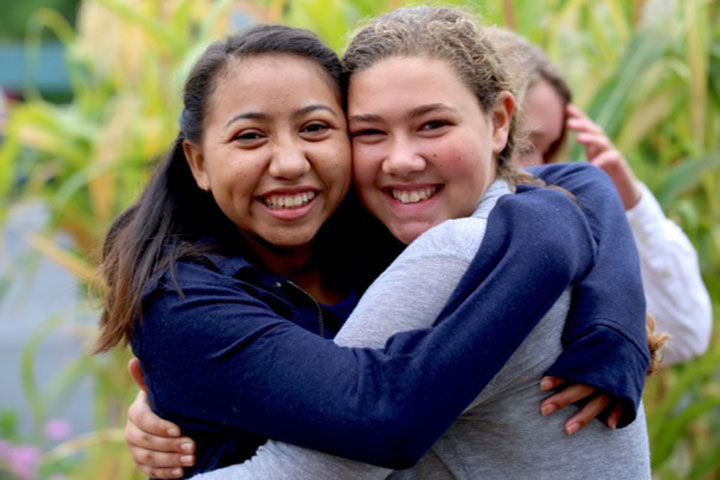Sixth Grade
At Woodland Star, sixth graders physically and academically cross the street into the middle school years. The curriculum expands dramatically; delving into the rise and fall of the Roman Empire followed by studies of medieval times. They are introduced to the first of three middle school blocks in physics studying light, sound, heat, and magnetism. Mineralogy, geology, and astronomy are introduced and are cemented with overnight field trips to the mountains to observe all of this phenomena first-hand.
Sixth Graders at Woodland Star learn:
- Math: Ratios; proportions; geometric drawing with instruments; business math; pre-algebra
- Literature & Grammar: Composition; grammar; spelling; biographies
- Science: Mineralogy; physics (acoustics, electricity, magnetism, optics and heat); beginning astronomy; continuation of reproductive systems; continuation of garden and nature studies
- History & Social Studies: Roman and medieval history
- Geography: North America; South America
- Music: Singing; recorder; rhythm (drums)
- Art: Calligraphy; painting; clay modeling
- Foreign Language: Spanish continued (grammar; reading and writing continued)
- Handwork: Hand-sewing pillows (visualizing a three-dimensional finished product); needlepoint
Seventh Grade
Seventh graders have a deep inner-need to be thoroughly impressed. The curriculum meets this challenge perfectly with blocks in combustive Chemistry filled with thrilling experiments. More science unfolds with the first middle school physiology block when students study nutrition, digestion, respiration, and circulation of the human body. Additionally, they learn the process of human reproduction and development. The historical theme of seventh grade is the Renaissance and The Age of Exploration where they learn the biographies of many of the greats including Michelangelo, Leonardo DaVinci, and Shakespeare.
Seventh Graders at Woodland Star learn:
- Math: Algebra; mathematical thinking/theory; geometry
- Literature & Grammar: Creative writing; essay composition; grammar; spelling and punctuation; classical literature
- Science: Physics (mechanics); physiology (blood and muscles); astronomy continued; inorganic chemistry; nutrition; continuation of garden and nature studies
- History & Social Studies: End of Middle Ages; Age of Exploration; Renaissance
- Geography: European and world geography
- Music: Singing; recorder; rhythm (drums)
- Art: Calligraphy; clay modeling; painting
- Foreign Language: Spanish continued (short essays in Spanish; reading descriptive materials, travel articles)
- Handwork: Machine sewing
- Technology: Computers may be introduced and skills such as typing and internet research may begin
Eighth Grade
In this culminating year, eighth graders study a variety of modern revolutions through historical biographies. Science blocks continue with experiments in Organic Chemistry and Physics (electromagnetism). Physiology culminates with studies of the skeletal, muscular, and nervous systems and students are made aware of a variety of related health issues.
Eighth Graders at Woodland Star learn:
- Math: Practical applications of arithmetic; algebra; geometry
- Literature & Grammar: Essay composition; grammar; spelling; literature (short stories, poetry, letters, Shakespearean drama)
- Science: Physics; organic chemistry; physiology; continuation of gardening and nature studies through ecology
- Music: Singing; recorder; rhythm (drums)
- Art: Calligraphy; clay modeling; painting
- Foreign Language: Spanish continued (reading from Spanish literature – Cervantes, de Vega, etc.)
- Handwork: Machine sewing of clothing
- History & Social Studies: World economics; American history
- Geography: World geography
- Technology: Computers are used to continue typing skills, internet research, and curriculum related on-line projects.
Our hope is that our graduates will leave Woodland Star with a clear sense of their capacities and to work through challenges as they look to the future. Most importantly, our wish is that our graduates have learned to see that the world is ultimately a beautiful place; and that it is worth devoting one’s will to contribute to make it better. We aspire to give each student exactly what they need to learn to think, create, and to explore throughout their lives.






